第9章 IV THE MANIA OF COLLECTING SEIZES ME(1)
Captivity Waite never approved of my fondness for fairy literature. She shared the enthusiasm which I expressed whenever ``Robinson Crusoe'' was mentioned; there was just enough seriousness in De Foe's romance, just enough piety to appeal for sympathy to one of Captivity Waite's religious turn of mind.
When it came to fiction involving witches, ogres, and flubdubs, that was too much for Captivity, and the spirit of the little Puritan revolted.
Yet I have the documentary evidence to prove that Captivity's ancestors (both paternal and maternal) were, in the palmy colonial times, as abject slaves to superstition as could well be imagined. The Waites of Salem were famous persecutors of witches, and Sinai Higginbotham (Captivity's great-great-grandfather on her mother's side of the family) was Cotton Mather's boon companion, and rode around the gallows with that zealous theologian on that memorable occasion when five young women were hanged at Danvers upon the charge of having tormented little children with their damnable arts of witchcraft. Human thought is like a monstrous pendulum: it keeps swinging from one extreme to the other. Within the compass of five generations we find the Puritan first an uncompromising believer in demonology and magic, and then a scoffer at everything involving the play of fancy.
I felt harshly toward Captivity Waite for a time, but I harbor her no ill-will now; on the contrary, I recall with very tender feelings the distant time when our sympathies were the same and when we journeyed the pathway of early youth in a companionship sanctified by the innocence and the loyalty and the truth of childhood. Indeed, I am not sure that that early friendship did not make a lasting impression upon my life; I have thought of Captivity Waite a great many times, and I have not unfrequently wondered what might have been but for that book of fairy tales which my Uncle Cephas sent me.
She was a very pretty child, and she lost none of her comeliness and none of her sweetness of character as she approached maturity. I was impressed with this upon my return from college.
She, too, had pursued those studies deemed necessary to the acquirement of a good education; she had taken a four years' course at South Holyoke and had finished at Mrs. Willard's seminary at Troy. ``You will now,'' said her father, and he voiced the New England sentiment regarding young womanhood; ``you will now return to the quiet of your home and under the direction of your mother study the performance of those weightier duties which qualify your sex for a realization of the solemn responsibilities of human life.''
Three or four years ago a fine-looking young fellow walked in upon me with a letter of introduction from his mother. He was Captivity Waite's son! Captivity is a widow now, and she is still living in her native State, within twenty miles of the spot where she was born. Colonel Parker, her husband, left her a good property when he died, and she is famous for her charities.
She has founded a village library, and she has written me on several occasions for advice upon proposed purchases of books.
I don't mind telling you that I had a good deal of malicious pleasure in sending her not long ago a reminder of old times in these words: ``My valued friend,'' I wrote, ``I see by the catalogue recently published that your village library contains, among other volumes representing the modern school of fiction, eleven copies of `Trilby' and six copies of `The Heavenly Twins.'
I also note an absence of certain works whose influence upon my earlier life was such that I make bold to send copies of the same to your care in the hope that you will kindly present them to the library with my most cordial compliments. These are a copy each of the `New England Primer' and Grimm's `Household Stories.' ''
At the age of twenty-three, having been graduated from college and having read the poems of Villon, the confessions of Rousseau, and Boswell's life of Johnson, I was convinced that I had comprehended the sum of human wisdom and knew all there was worth knowing. If at the present time-- for I am seventy-two--I knew as much as I thought I knew at twenty-three I should undoubtedly be a prodigy of learning and wisdom.
I started out to be a philosopher. My grandmother's death during my second year at college possessed me of a considerable sum of money and severed every tie and sentimental obligation which had previously held me to my grandmother's wish that I become a minister of the gospel. When I became convinced that I knew everything I conceived a desire to see something, for I had traveled none and I had met but few people.